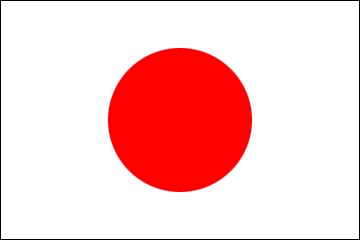第58回人権理事会 人権主流化に関する年次ハイレベルパネルディスカッションにおける石井良実公使ステートメント(2025年2月24日)
令和7年2月25日
The 58th Session of the Human Rights Council
Annual high-level panel discussion on human rights mainstreaming
Statement by Mr. ISHII Yoshizane, Minister
The Permanent Mission of Japan in Geneva
24 February 2025
Annual high-level panel discussion on human rights mainstreaming
Statement by Mr. ISHII Yoshizane, Minister
The Permanent Mission of Japan in Geneva
24 February 2025
Thank you, Mr. President.
As guided by both the Vienna and the Beijing Declaration and Program of Action, Japan considers policies focused on gender equality based on human rights to be among the most important for realizing a society where all people can feel that their purpose in life, and their individuality and diversity, are respected.
We have achieved significant progress over the past 30 years. However, we are confronted by ongoing and newly emerging challenges to gender equality caused by various drivers, including armed conflict, natural disasters, social inequality, and pushback against promoting and protecting women’s rights in normative discussions.
Besides Beijing +30, this year marks the 25th anniversary of the landmark UNSC Resolution 1325 on the WPS agenda. Together with Norway, Japan is co-chairing the WPS Focal Points Network for 2025. As part of this commitment, we convened a capital-level meeting in Tokyo earlier this month. Ensuring the meaningful participation of women in decision-making, in line with the WPS agenda, is an integral part of protecting human rights for all and achieving lasting peace.
Furthermore, it is important to note that when gender-based discrimination intersects with discrimination related to disability, age or sexual orientation, this disproportionately exacerbates the vulnerable situation of women and girls. We must take gender-transformative steps to eliminate such violence by adopting a survivor-centred approach and engaging in advocacy for preventive norms.
Alongside relevant stakeholders, including civil society, Japan will redouble its efforts to achieve gender equality and the empowerment of all women and girls in its society and beyond.
I thank you, Mr. President.
As guided by both the Vienna and the Beijing Declaration and Program of Action, Japan considers policies focused on gender equality based on human rights to be among the most important for realizing a society where all people can feel that their purpose in life, and their individuality and diversity, are respected.
We have achieved significant progress over the past 30 years. However, we are confronted by ongoing and newly emerging challenges to gender equality caused by various drivers, including armed conflict, natural disasters, social inequality, and pushback against promoting and protecting women’s rights in normative discussions.
Besides Beijing +30, this year marks the 25th anniversary of the landmark UNSC Resolution 1325 on the WPS agenda. Together with Norway, Japan is co-chairing the WPS Focal Points Network for 2025. As part of this commitment, we convened a capital-level meeting in Tokyo earlier this month. Ensuring the meaningful participation of women in decision-making, in line with the WPS agenda, is an integral part of protecting human rights for all and achieving lasting peace.
Furthermore, it is important to note that when gender-based discrimination intersects with discrimination related to disability, age or sexual orientation, this disproportionately exacerbates the vulnerable situation of women and girls. We must take gender-transformative steps to eliminate such violence by adopting a survivor-centred approach and engaging in advocacy for preventive norms.
Alongside relevant stakeholders, including civil society, Japan will redouble its efforts to achieve gender equality and the empowerment of all women and girls in its society and beyond.
I thank you, Mr. President.
